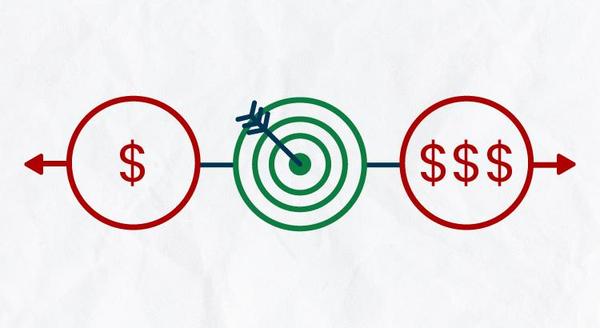
5 Steps Smart Sellers Take to Generate Multiple Offers
Home sales (and values) have been on a strong uptick nationwide thanks to low interest rates, freer lending standards and a drop in the foreclosure rate. Sellers everywhere are breathing a giant, collective sigh of relief! But for all of the buyer activity, it seems like most houses sit on one end of two extremes: they either get snatched up the moment they hit the market (with multiple offers and an above-asking sale price) or seem to languish on the market without an offer in sight. All sellers aspire to be on the multiple-offer end of the spectrum. Fortunately, there are steps you can take to make that happen. Here are five tips to move your listing in to the multiple offers zone. 1. Price it aggressively. Homes that get multiple offers are often sold in an "auction" atmosphere. If you think back to the last auction you saw on TV or participated in online, you'll remember this basic element of Auctions 101: the starting price is lower – sometimes quite a bit lower – than the final sale price. In fact, it's the low list or starting price that gets people excited about the possibility of scoring a great value, whether they're bidding on an antique Chinese pug figurine on eBay or on your home. And when it comes to your home, it's that same, low-price-seeking excitement that will cause many more buyers to show up and view your home than would have come at a higher price point. In real estate, more showings are an inescapable prerequisite to more offers. This doesn't mean you have to give away the farm, just that sellers who get multiple offers price their properties from a retailer's or auctioneer's perspective. Work with your agent through the comparable sales data – as recent and as comparable as possible – and then do your best to list your home as a slight discount, not at a slight premium, compared to the recent neighborhood sales. That will get buyers' attention. 2. Give buyers and brokers ample access. Put yourself in your target buyer's shoes. Say there are 40 homes on the market which meet their specifications, in terms of bedrooms, bathrooms, square footage, price range and location. And 25 of those top the list. But they only have time to see 8 today. If the buyer's broker can't get into your house today, because you have so many restrictions around showing it, your home could very well miss out on a showing with this qualified, motivated buyer. It might seem overly simple, but if you want multiple offers, it behooves you to make sure your home is available to be shown today. Every day that it is on the market. Inconvenient? Yes. Frustrating? Sometimes. A challenge to keep the place clean at all times? Assuredly. But consider your priorities and what is at stake. If getting top dollar for your home is at the top of your priority list, then you have to be ready and willing to deal with the inconvenience involved in churning up multiple offers and getting your home sold. 3. Make it beautiful. Really, really beautiful. The homes that get multiple offers are those with look, feel and function that can be described in one word: covetable. You're not trying to create a situation in which your home barely edges out the listing down the street in the hearts and minds of your target buyer. If you want multiple offers, you need multiple buyers to fall deeply in love with your home – enough to bid above the listing price, and enough to compete with others for it. To generate multiple offers, prepare your home by ensuring it is: immaculately cleaned from the inside out – closets, basements, garages and crawl spaces included, de-cluttered and staged to the nines – this includes fresh paint, carpet and other things that need replacing in perfect working order – make sure things like doors, windows and systems buyers test (e.g., stoves, faucets, heating and air conditioning) are not creaky, wonky, leaky or otherwise dysfunctional. If you've done any major home improvements or replaced any appliances or systems lately, market that! Show off how immaculate, adorable and move-in ready your home is now – and tout its great working condition for the long run. 4. Expose it to the market. An offer the very first day your home goes on the market may sound like a dream come true. But it might also incur opportunity costs. See, many buyers can't get out to see homes that quickly – some are unable to house hunt except on the weekends. Listing agents who get multiple offers often plan from the start to expose the home to the market long enough for target buyers to see it and get their offers on the table. Some agents expressly include open house and offer review dates in the timeline of the listing. It's not uncommon to see a listing come on the market with a calendar of 1-2 Open Houses and an offer date sometime early in the week following the second one. Ask your agent to brief you on the standard practices for market exposure in your local area. Setting – and publishing – a timeline for market exposure and offers lets buyers know that they will be able to get to the property and get their offers considered, while still creating a sense of urgency. 5. Be ready to course correct. Is your home one of the houses that has been sitting on the market for months without any action? Do not fret – there might still be hope. In real estate, there's something insiders call the Sweet Spot Phenomenon, where an overpriced home sits on the market for months with no bites, sometimes even through multiple price reductions. Finally, the seller lowers the price to the 'sweet spot,' and it generates multiple offers and sells for more than the final list price. Yes – there are listings whose sellers net more than they expected because they were willing to revise the list price downward in response to market feedback (i.e., no showings, no offers or lowball offers). If your home has been lagging on the market, talk with your listing agent about what sort of price reduction strategy is likely to maximize your net sale price. Hint: many more buyers are attracted by chunky reductions or reductions below a common online search price point limit than by tiny, incremental reductions. For example, you might draw more buyers, and ultimately more money, with a price reduction from $499,000 to $474,000 than with a series of small reductions from $499,000 to $479,000, because there is a set of buyers who may be cutting their search off at $475,000 – so a price cut below that point will expose your home to a whole new group of prospects.

Is Selling Your Home Right Now A Mistake?
Ask any real estate agent how the market is and you’re almost sure to get the same answer: “Great!” Even if the market is great, it still may not be a great time for you to sell. Many real estate agents will tell you that NOW is the right time to sell your home when in reality, they can’t know that without knowing the specifics of your situation. Before going down a long and stressful journey, let’s first decide if selling your home right now is a mistake. What’s true about relationships is also true about selling your home: When it’s time to make a big decision, go with your gut feeling. But like anyone who has ever put off a breakup, it’s amazing how easy it is to talk yourself out of what you really want to do. You’ll say you’ll get around to addressing the ‘80s curb appeal, that you can live with your shoebox-sized closets, and you don’t mind that the location limits your job opportunities. Really, you’re fine. Yet, you still can’t shake the feeling that it’s time to go. Though there are many ways to justify staying put, some of the most common doubts can be particularly persistent — and some may even masquerade as logical reasons. Here’s how to identify these hang-ups so you can finally move on and own the home you truly want: “What if my home ends up being worth more a year after I sell it?” Markets are about timing — yours could be on an upswing and selling could mean you’re missing out on receiving more for your home later. However, markets can also just as dramatically swing the other way, just like they did in 2008. The lesson? You can’t really time the market. Instead, focus on easy (and inexpensive) tasks in your control that can help your home sell for more whenever the time is right. Decluttering, painting your rooms neutral colors and even cleaning up your yard can sometimes bring a home’s value up regardless of what the market is doing. “I don’t qualify for a different home.” If your credit has gotten worse, you’ve spent all your savings on the home you’re currently in, or your financial situation is just tight overall, it might be a mistake to sell your home right now. This is one of the trickiest thoughts about selling because it seems reasonable. You know your budget and you’ve probably even looked up what homes have been selling for in your neighborhood. But after researching, you honestly know you just don’t qualify for a new mortgage right now and would have to go back to renting if you did sell. “My friend who’s a real estate agent told me I should sell now.” Working with close friends and family may not be the best decision. At first thought, it seems like a great idea because they know you, your current situation, and you can (in most cases) trust them. But imagine what it will feel like five months from now when your home is still on the market with zero offers... Take time to think hard about who you’re hiring to sell your home. If your friend or family member feels like the best decision for you, go for it. Working with the right real estate agent can take the stress out of the selling process. That said, treat this decision like you would for anyone else who would provide a service for you and take the time to interview other prospective agents. This can help you screen the ones that may not be the best fit for your personality or even your home (especially if you have a unique property such as a vintage home). Focus your questions on their past experiences selling in your area, how long they’ve worked in your market, how well they know your neighborhood, and if they have worked with sellers who have similarly valued homes to yours. From speaking with several real estate agents (some you already knew and some you didn’t), you’ll also get a sense of how they communicate and if you’ll “click” during what can be a stressful process no matter who helps you. "Working with the right real estate agent can take the stress out of the selling process. That said, treat this decision like you would for anyone else who would provide a service for you and take the time to interview other prospective agents." “I have to make a lot of costly repairs before I can sell my home for as much as I would like.” Depending on the age of your property, your agent may suggest making a few repairs in order to command the highest price. The extent of repairs needed often has to do with the comparable homes in your area for sale. For example, if there’s a home exactly like yours on the market, but that one has a brand new roof, the agent may suggest replacing yours. But, you don’t necessarily have to make expensive repairs if you don’t want to — you could sell your home as-is. Some buyers like the idea of updating and customizing a property to exactly suit their needs. Others do not want to incur costly repairs on day one. “I’m afraid to start over in a new location.” This is often the underlying fear when you have doubts about selling and moving to a new location. Even if you’re staying in the same town, your block will be different, your proximity to places like the grocery store or gym will change, and you’ll have to go through the process of getting to know new neighbors. Is it a change? Yes. But, it’s not one you wouldn’t get used to. If you’re moving to a new city, the transition is obviously a bigger one. Look at it as an adventure. It’s a chance to start fresh, meet new people, find new favorite restaurants, and maybe even start a new career. Whenever you are ready to sell your home, I would love a chance to earn your business and hope you found our honest approach to advising our clients refreshing.

7 Ways to Sabotage The Sale of Your Home
Through the years, we’ve worked with countless sellers. The sale of your home relies on a number of factors, and we understand it’s easy for things to fall through the cracks. Don’t let these traps sabotage the sale of your home. We’re here as a resource for this potentially stressful transaction to be a smooth sail from listing to closing. Mistake #1 - Not Knowing The Local Market Knowing the sold price of homes in your neighborhood gives you a good idea of how much you should list your home for. Overpricing can leave your home on the market for longer than anticipated, putting things on hold. We keep track of the neighborhood statistics for you, so you’ll always be up to date. Mistake #2 - Overlooking Easy Fixes Before An Appraisal Pass your home inspection with flying colors! Low-cost updates throughout your home, especially in the kitchen, bathroom, family room, and the overall curb appeal can boost your appraisal. Be sure to keep a record of all major home renovations! Mistake #3 - Keeping The Clutter First impressions are long lasting. You may be blind to your home’s disorganization, but it will be the first thing a buyer will notice. When a buyer is serious about a home, they'll want to see every inch of it. Don’t forget to clear out closets, drawers, and all those small places where clutter can build up. Mistake #4 - Poor Photography When most home buyers begin their search online, photos are your home’s first impression. Instead of using an iPhone, we hire a professional photographer to show your home on its “best” day. Professionally staging your home paints a picture for potential buyers, which is a service we’re happy to offer. Mistake #5 - Weak Marketing Strategy Most sellers don’t work with realtors who have a strong online presence. When you sell with us, we make sure your home gains maximum exposure to potential buyers. Our website and email blasts, coupled with our use of targeted Facebook marketing, allows our properties to reach thousands. Mistake #6 - Selling Your Home FSBO (For Sale By Owner) & Not Using An Agent Some think selling a home on their own is easy, but at the end of the day, you’ll most likely need the help of an expert. Not only will we provide invaluable market insight, but we’ll help you through all the paperwork and negotiate for you. Homes also tend to sell for more when working with a realtor. (According to NAR, FSBO's accounted for 7% of home sales in 2017. The typical FSBO home sold for $200,000 compared to $265,500 for agent-assisted home sales.) #7 - Life Happens Some buyers might get cold feet or have a change of heart. This is one area where sellers have minimal control over, and most of the responsibility is on the buyer. Some need to make a big purchase right before closing, which can cause their loan to fall through. Some things are out of your control… but we’re here to ensure everything in our control goes smoothly.
Categories
Recent Posts










